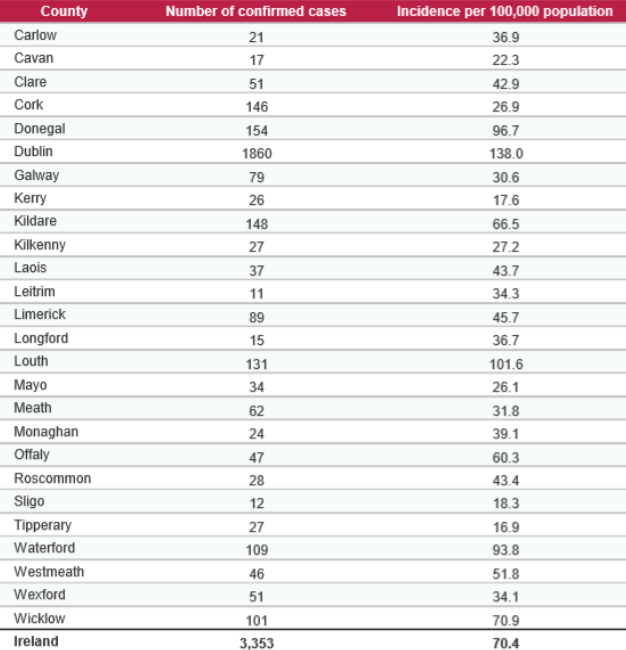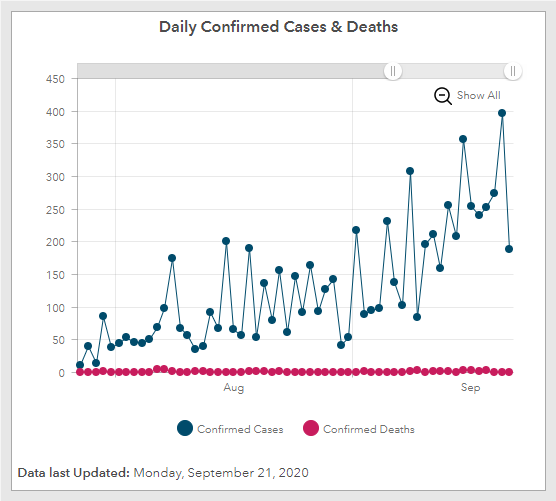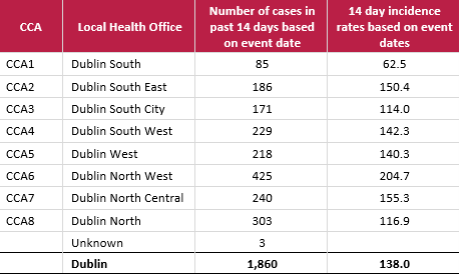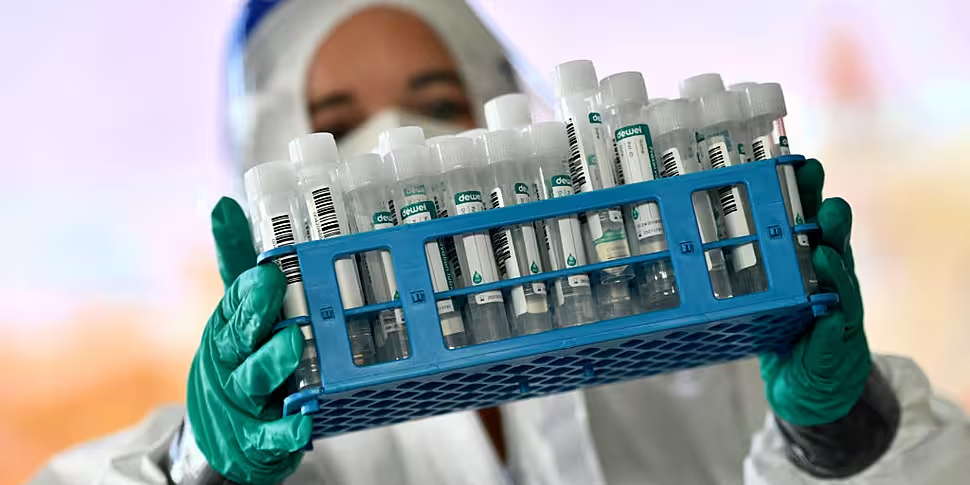County Louth has become the second county to see its two-week COVID-19 incidence rate rise above 100.
The number of confirmed cases of the virus per 100,000 people in the county now sits at 101.6.
Meanwhile, the 14-day rate is now up in the 90s in both Donegal and Waterford
Dublin still has the highest levels in the country at 138 per 100,000.
 The number of COVID-19 cases per 100,000 people in each county in the Republic over the past two weeks. Image: HPSC
The number of COVID-19 cases per 100,000 people in each county in the Republic over the past two weeks. Image: HPSCThere are fears a number of counties could follow Dublin into Level Three restrictions – with eight counties causing officials particular concern.
These are Louth, Waterford, Limerick, Kildare, Leitrim, Donegal, Offaly and Wickow.
On Newstalk Breakfast this morning, HSE Chief Clinical Officer (CCO) Colm Henry said the only way to break transmission is to reduce social contact.
“The figures are going up in those countries and the same rules apply in that there is no cure for this virus; there is no safe effective, widespread vaccine available.
“In that context, the only way we can prevent uncontrolled transmission, which is the greatest threat to our population, is restricting social contacts.
“Reducing the number of settings where the virus can jump from household to household and individual to individual.”
 COVID-19 cases in Dublin. Image: Gov.ie
COVID-19 cases in Dublin. Image: Gov.ieDr Henry said the rise in community transmission of the virus over the past few days has been particularly worrying in Waterford, Leitrim and Louth.
It comes after a further 14 people were admitted to Irish hospitals with COVID-19 in the past 24 hours, the highest daily figure since the end of May.
As of this morning, there were 94 COVID-19 patients in hospital and 17 in intensive care.
It means the number of patients in hospital has quadrupled in the past month while the number of people in intensive care has more than doubled.
In Dublin, the 14-day rate is highest in the Dublin North West area – where it is currently sitting at 204.7. Other parts of the city that are badly hit include Dublin South East at 150.4 and Dublin North Central at 155.3.
 The number of COVID-19 cases per 100,000 people in Dublin over the past two weeks. Image: HPSC
The number of COVID-19 cases per 100,000 people in Dublin over the past two weeks. Image: HPSCDr Henry said fatigue about the public health guidelines is understandable – but warned that without a vaccine or an effective cure there is no other to slow the spread of the virus.
“The learning for us over the past few months has been to keep the message as simple as possible and the message we have now is, ‘halve your contacts and manage your contacts,’” he said.
“Every single person listening this morning, the three of us in this studio, when we distance and put screens between each other we are all managing any contact we have.
“We have to reduce any contact between you and me because neither of us is the best judge as to whether we have the virus or can catch it.”
You can listen back to the full interview here:









